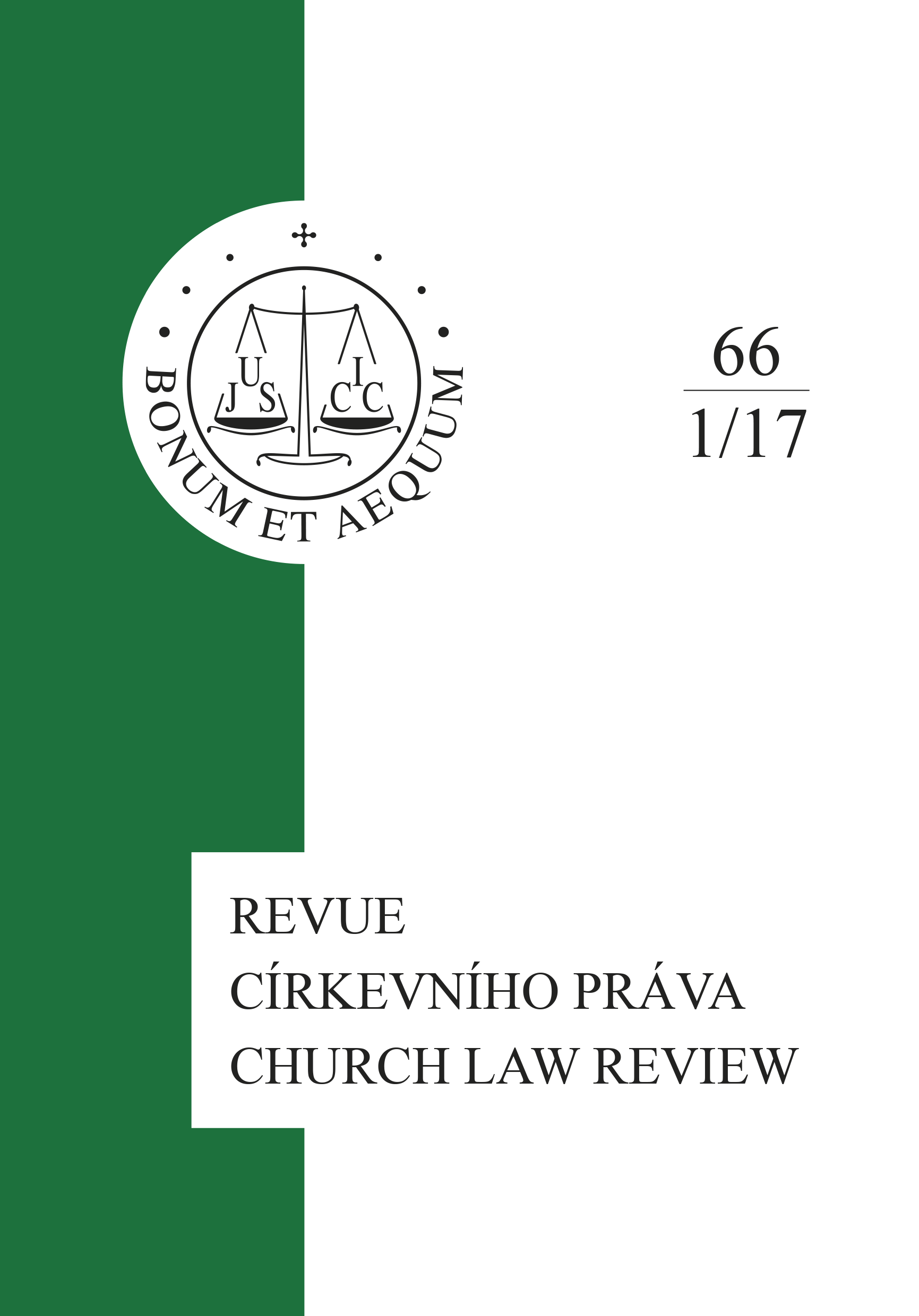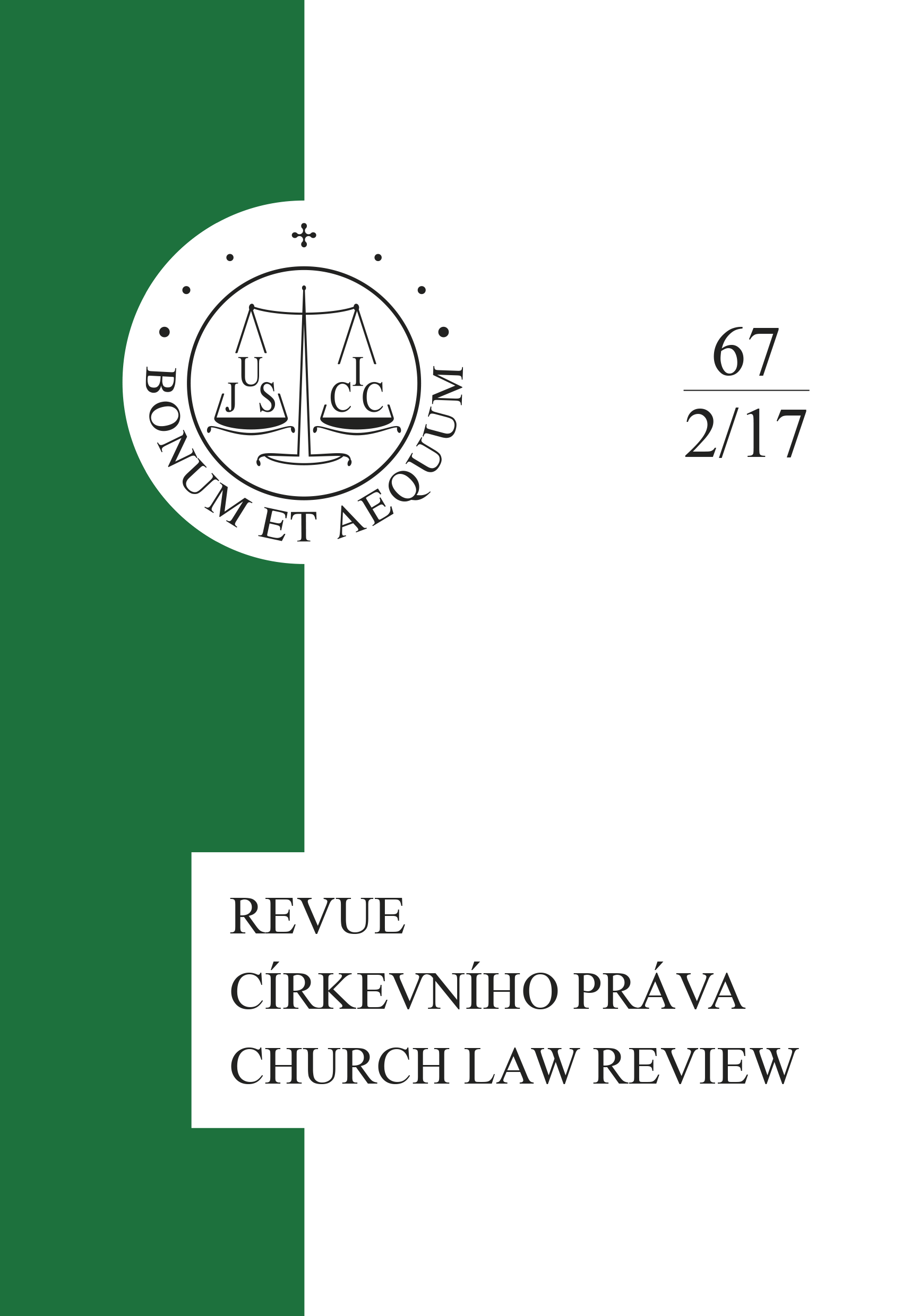
We kindly inform you that, as long as the subject affiliation of our 300.000+ articles is in progress, you might get unsufficient or no results on your third level or second level search. In this case, please broaden your search criteria.



Compared to the ecumenical dialogue among the Christian churches, it is difficult to conceptualize through the means of canon law the interreligious dialogue between the Catholic Church and other religions. Missionary canon law assumes an honest dialogue between missionaries and mission addressees if they are adherents of non-Christian religions. The Pontifical Council for Interreligious Dialogue is the highest body of the Holy See that is dedicated to the overall Church coordination of activities of interreligious dialogue. The article analyzes the Catholic Church’s views on different religions, particularly Hinduism, Buddhism, Islam, and Judaism. It points out new features of the views on these religions in the Nostra aetate declaration of the Second Vatican Council, which focuses on non-Christian religions. The article mentions some post-Council initiatives and activities that have sought to contribute to mitigation of the sometimes strained relationships with some religions.
More...
The article discusses the changes introduced into the 1983 Code of Canon Law by Motu Proprio De Concordia inter Codices of 15th September 2016. The article details the changes in signing members into the church sui iuris, the effect of a transfer into another church sui iuris, and the registering of the changes. The article also mentions changes to the provisions on baptism in a case of danger of death or in a case of urgent need, and changes to marital law.
More...
The author proposes the abrogation of Act No. 3/2002 Sb., on religious communities, if only for its fundamental deficiencies with respect to the conclusion of contracts between religious communities and the state. He emphasizes that religion law is an area of law that is independent from administrative law, and therefore it is necessary to approach the sources of religion law with the application of principles inherent to religion law. The author contradicts the view that contracts concluded between religious communities and the state are public law contracts under Part Five of the Code of Administrative Procedure. He takes the view that contracts between religious communities and the state have a nature that more closely resembles a source of law, and de lege ferenda, he proposes legislating the possibility of concluding them, with a clear statement of their legal nature, as sources of law sui generis. The appropriate source of inspiration for this solution is in German, Slovak, and Spanish laws.
More...![Alfréd Somogyi: Az egyházjog isteni többlete [Božský prínos cirkevného práva]](/api/image/getissuecoverimage?id=picture_2017_30353.png)










The ordinary minister of the sacrament of confirmation must be a bishop, who always confers the sacrament validly on the grounds of received episcopal consecration. Conversely, a presbyter without proper faculty can only confer the sacrament invalidly. That said, a presbyter can be provided with the faculty of administering confirmation by the law itself or the competent authority, which may confer the faculty on individual cases or on a long-term basis. Any minister of confirmation may authorize other presbyters in order to administer the sacrament with himself in individual cases.
More...
Primarily, this article is intended to provide guidance to officers of ecclesiastical tribunals in the process of applying the provisions of the Code of Canon Law, which has been amended by the motu proprio Mitis Iudex Dominus Iesus. In the process, it seeks to clarify some of the vaguer points arising from the publication of this particular motu proprio and presents the latest statements of the Pontifical Council for Legislative Texts and Roman Tribunals.
More...

